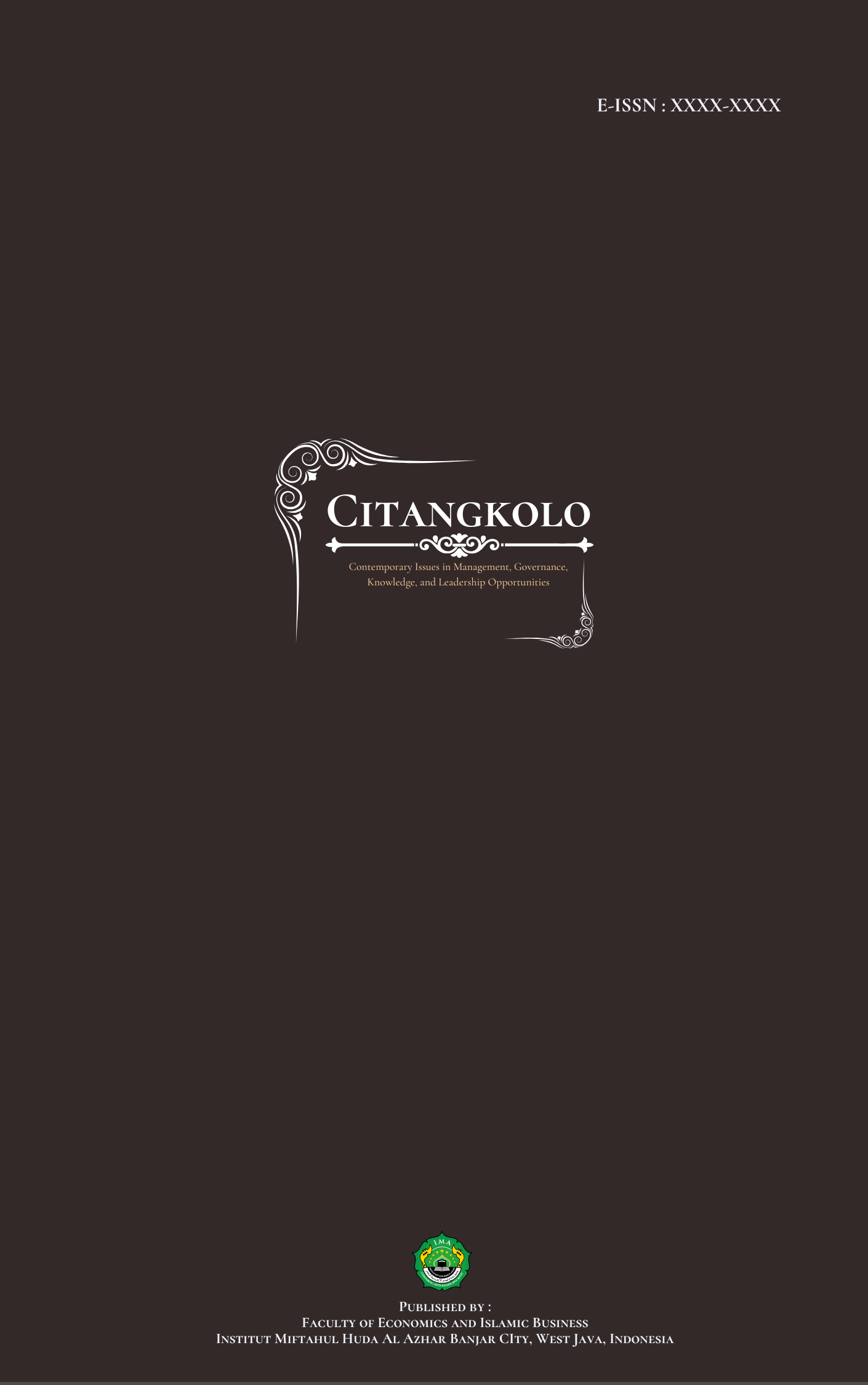Islamic Leadership in Managerial Practice: Shura, Amanah, and Adil in KRT Dr. Dasep’s Thought
Keywords:
Islamic Leadership; Shura; Amanah; Justice; Managerial PracticeAbstract
Background: Islamic leadership is grounded in core values such as shura (consultation), amanah (trustworthiness), and adl (justice), which are vital for ethical managerial practice. However, empirical studies on how these values are implemented by local leaders in Indonesia, especially in Pangandaran, remain scarce.
Methods: This qualitative case study investigates the leadership of KRT Dr. Dasep Supriatna Rekso Adinagoro, an influential educational and cultural leader in Pangandaran. Data were collected via semi-structured interviews, observations, and document analysis at STITNU Al-Farabi.
Results: Findings indicate that the values of shura, amanah, and adl shape leadership decision-making, human resource management, and organizational culture. Dr. Dasep’s leadership actively applies consultation to promote participative governance, trustworthiness to uphold accountability, and justice to ensure fairness.
Discussion: The application of these Islamic principles enhances organizational integrity and fosters trust among stakeholders, creating a sustainable and positive work environment. His leadership also effectively blends traditional cultural values with contemporary management practices, providing a relevant model for Islamic organizational governance.
Conclusion: Incorporating Islamic leadership values into managerial practice improves organizational effectiveness and supports sustainable development. The case of KRT Dr. Dasep exemplifies this integration in the local Indonesian context.
Novelty: This study offers one of the first empirical analyses of Islamic leadership values in a regional Indonesian setting, contributing valuable insights to the literature on Islamic leadership and organizational governance.




